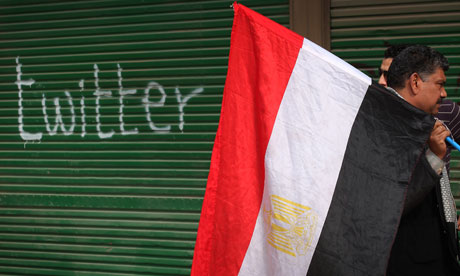A lot has been written about the role that social media (Twitter and Facebook) and YouTube may have played in the Arab Spring. With some of claiming that these communication tools were the essential levers that overthrew so many regimes last year. Others claim that their role was minimal and that the digerati are deluding themselves that their new toys have some real worth or purpose - they should go back to tweeting about the quality of their local laté. The truth lies somewhere in between, as this article in The National makes clear and as does this blog.
The initial role of Twitter, Facebook and YouTube of spreading the news of atrocity and outrage from Iran to Syria is undeniable, but regimes in all of the countries were quick to shutdown mobile phone networks and the Internet as they saw fit. Stories that Twitter was used to command and control people during protests are certainly wishful thinking. One aspect that should not be overlooked though is the role that satellite phones have played.
Once the exclusive toys of the wealthy, $1,000 now buys one and expatriate Syrians, living in London, Paris or the US, can send them in to relatives inside Syria. Using these rebels can upload video to YouTube even if the Syrian regime has shut down the Internet. As a consequence video footage appears daily documenting the horrific events all across the country; for example the Souria2011archives Channel on YouTube (WARNING, explicit 18+ disturbing violence). Dictators can no longer hide their crimes from the rest of the world behind a propaganda wall which they control. This is discussed in chapter 11, Web 2.0 of the The Universal Machine.
I hope that the tragic events in Syria can be brought to a quick and peaceful end and that anyone guilty of atrocities there can be brought to justice. If YouTube can help this process, so much the better.


No comments:
Post a Comment